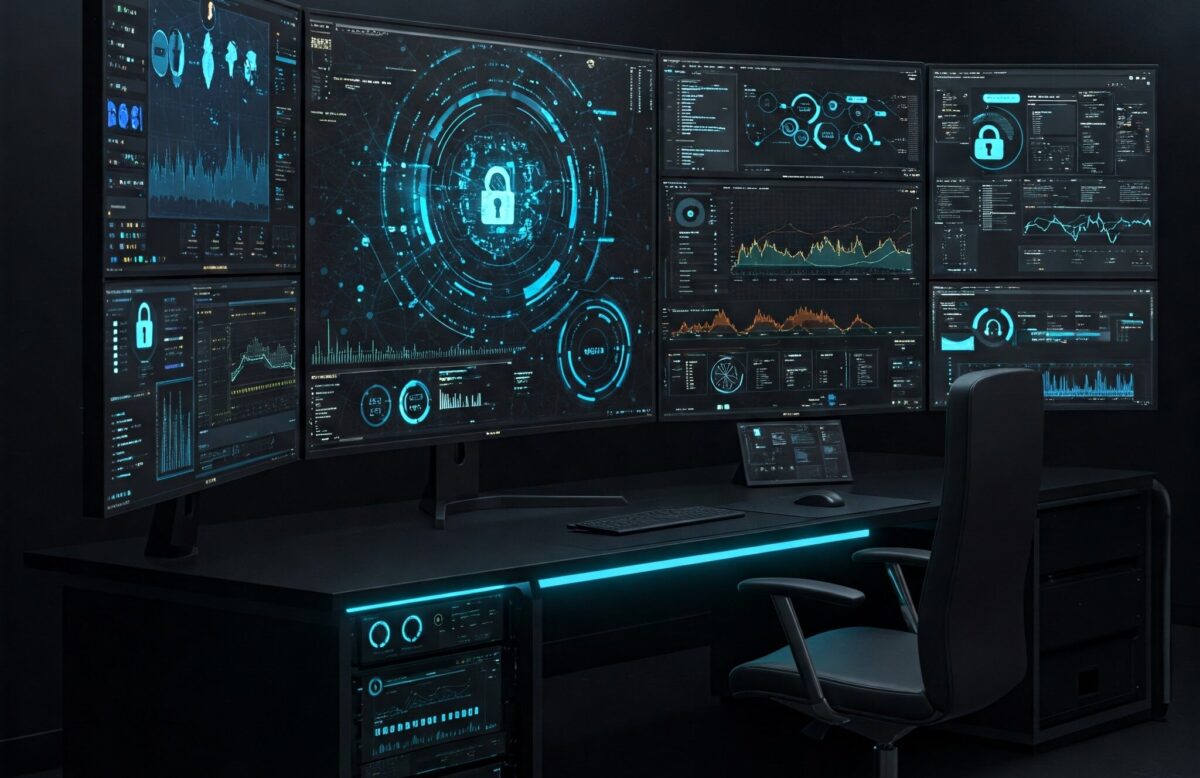Artificial intelligence (AI) has stormed into our lives, offering the potential for a revolutionary computer security, but also posing new and complex ethical challenges. This article delves into the fascinating, and sometimes dangerous, a marriage between artificial intelligence and cyber security, exploring the promises of a future where the AI protects us from the threats that are invisible, but also the risks of an innovation is uncontrolled. The stakes are high: the protection of our data, our infrastructures and our society.
IA, the Double-edged sword of Cybersecurity
It is undeniable that the IA represents a formidable asset in the ongoing battle against cyber criminals. Where traditional defenses struggle, the AI can make the difference, thanks to his extraordinary ability to analyze large amounts of data and identify patterns and anomalies, suspicious. Imagine a system able to fathom terabytes of information in real time, identifying suspicious behavior that sfuggirebbero to the human eye. This is the promise of AI for security.
But it's not only the speed and computing power. AI brings new defense techniques. Systems that use AI can analyze biometric data for authentication, or identify the unique behaviors of individual users or criminals, which are then stored in the systems and used for defense purposes. The AI is really a revolution.
However, there is a downside to this. The same power that makes the AI a tool of defense so effective, can be used for less noble purposes. That is why ethics, in this context, it can be an abstract concept or an appendix superfluous. Must be built from the ground up in the systems of AI safety.
The Ethical Challenges: When the Security Becomes Surveillance
One of the main ethical risks is represented by the problem of bias algorithmic. The AI learns from the data that we provide to you, and whether these data reflect prejudice or discrimination existing in the society, the AI can replicate and amplify them. An AI system trained on data that show a prevalence of certain ethnic groups in high-crime areas, for example, could unfairly connect these groups to a criminal behavior, addressing the surveillance disproportionately towards them.
Another hot topic is the one of the privacy. The systems of IA used for safety may collect and analyze massive amounts of personal data: information on our online behavior, on our journeys, on our communications. The line of demarcation between the protection and the surveillance becomes thin, and there is the risk of creating a “big brother” digital that undermines our fundamental freedoms. We think of the facial recognition systems used for surveillance mass, which can not only be used to identify criminals, but also to control the common people.
Then we cannot forget the question of responsibility. Who is responsible when an AI system security make a mistake? If a stand-alone system for the missile defense takes a wrong decision, who is the culprit? These questions do not have easy answers, and require us to rethink our traditional models of responsibility.
And finally, there is the great unknown of the uses malicious. The IA can become a powerful tool in the hands of those who want to harm: to create cyber attacks are more sophisticated, to manipulate information, to control and repress. The same technology that protects us can become a powerful weapon.
A Secure Future Free and The Recipe for an AI Ethics
Then, how can we ensure that AI is a positive force in cybersecurity, protecting us without eroding our rights and our freedoms? The answer lies in an ethical approach that is based on several pillars.
The transparency it is the first. We must demand that the systems of AI that govern our security are not “black boxes” that are opaque. We have the right to know how to make their decisions, which data to use, and what the reasoning to guide them. Transparency is the only way to build confidence, to submit the IA at a critical control, and to make sure that it is working so unfair.
The human control is another key element. As the AI can be powerful, the most important decisions, especially those that have ethical implications or legal, must remain in the hands of the people. The AI needs to be a support tool, which provides us with information and analysis, but the final word belongs to us.
The data minimisation it is a golden rule. We collect only the data strictly necessary for safety, and avoid accumulating unnecessary information or intrusive. The less data we collect, the lower the risk that they might be used for improper purposes or fall into the wrong hands.
The informed consent it is essential when the safety systems based on the IA use of personal data. People need to be informed clearly about what data is being collected, how it is used and for what purposes. No one should be spied on, or controlled without knowing it.
The responsibility must be defined in a clear way. When an AI system makes a mistake or causes harm, we need to know who is responsible. We can't afford gray areas, and / or discharge of liability.
And, perhaps most important, we need a open and continuous dialogue. The ethics of AI in cyber-security is not an issue that concerns only the experts. It is a question that concerns us all, and we need to discuss this publicly, involving experts, citizens, politicians, philosophers and all the actors who have a role to play in this future.
The road ahead is complex, but the goal is clear: to build a digital world more secure, thanks to artificial intelligence, but without sacrificing our values and our humanity.
